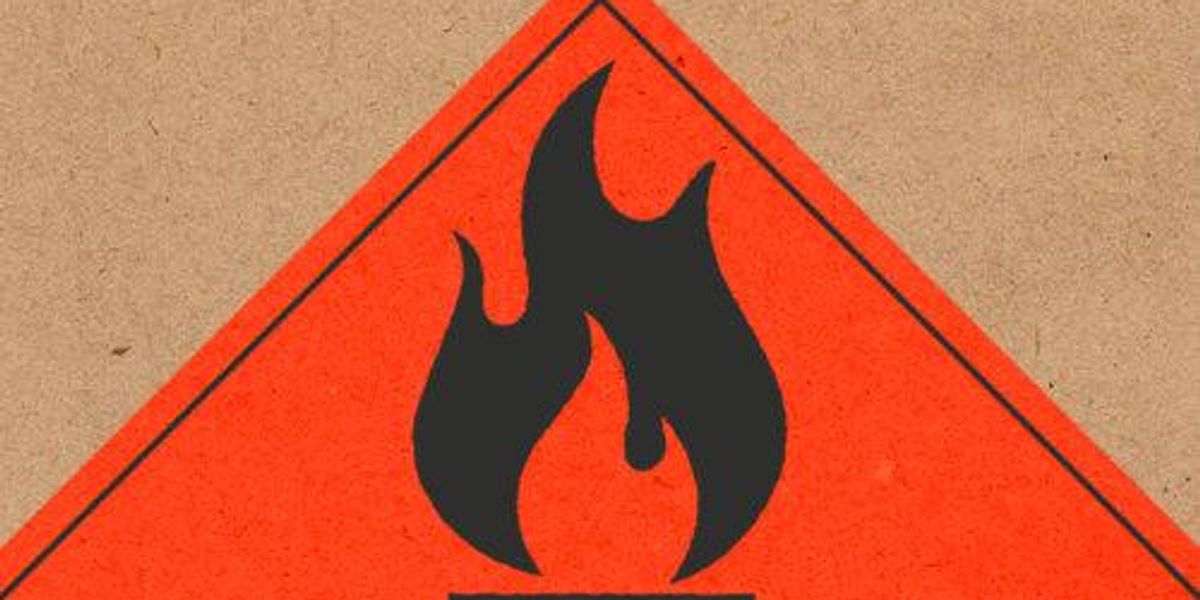
In 1988, before Massive Attack even existed, a reporter went to meet a vivacious rap and DJ collective known then as the Wild Bunch, five of whom would soon create Massive Attack.
The braggadocious group described themselves as “originators” and said they had invented a new genre called “minimalist lover’s Hip-Hop.” “Put that in your magazine. Let’s get some f**king respect around here,” said one.
The genre would eventually become Trip-Hop, but to revisit Massive Attack’s 1991 debut Blue Lines in 2021 is to bask solely in its scaling paranoia. When revisited under the guise of 2021 anxieties, love seems to be more of a fleeting theme on Blue Lines. “Don’t need another lover, just need, I’m insecure,” 3D stutters on “Daydreaming.” A gluey guitar riff and dragging scatter of drums slink behind Horace Andy as he pines for unattainable monogamy on “One Love,” purposefully contradicting Bob Marley’s communal sense of the word that had become commonplace.
Nowadays, safety and survival seem far more critical than perfect love. The dusty sampling of Billy Cobham’s “Stratus” on “Safe from Harm” conjures up images of a sweltering summer sun setting over an embattled city run by “gunmen and maniacs.” Del Naja is uneasy as she raps, but she’s okay with having the world “freed” just as long as her lover is granted safe passage through the night.
“Friends and enemies, I find it’s contagious,” 3D raps alongside her as paranoia sets in. “I was looking back to see if you were looking back at me to see me looking back at you.”
This paranoia is deeply present in us as we slowly begin to re-enter the outside world. On Monday, The New York Times released a collection of anecdotes from Americans who are uneasy about their post-pandemic future.
While many stories were mournful, many of the participants were somewhere in between reflective and depressive. “The pandemic has forced me into the present. It’s the meditation I never wanted but have come to appreciate,” said Jessica Berta from Milwaukee. “That said, last week I kicked a hole in the bathroom door.” This past year has, at worst, taken away people we care about and, at best, locked us in a constant state of Stockholm Syndrome. We have lived in our captor’s shadow for over a year, and COVID is so embedded in our everyday existence that imagining a world without its omnipresent risk can at times stir suspicion as if it’s too good to be true.
Massive Attack – Safe From Harm www.youtube.com
Regardless, there is no returning to what came before. On past listens, it was easier to disregard Blue Lines’ underlying anxieties. They loitered in the background beneath the record’s relaxed instrumentals and rhymes. After all, this is the same record that kickstarted an endless wave of chill-out compilations. But in the present day, the album’s apprehensions overpower any sense of calm. For a record that kickstarted the breezy Trip-Hop movement, Blue Lines sounds almost numbing when paired against the backdrop of our current existence.
“Five Man Army’s” dubby baselines and quippy pitter-patter of drums are as cyclical as our quarantined days. A sprinkle of muted horns teases something new, only for the track to settle back into its unwavering syncopation.
Meanwhile, the album’s quietened title track embodies the humdrum suffocation of this past year. Tricky raps as if he’s lying on his bedroom floor, caught between the closing walls of an existential crisis. “It’s a beautiful day, well, it seems as such,” he raps quietly, doubting what his own eyes perceive out his window.
Other lines like “Are you a predator or do you fear me?” not only resonate with the trauma of racism but also encapsulate the disquiet anxiety that comes with living in a disease-ridden world. We’ve all wandered through this isolating year as “lonely as a puzzled anagram.” Lines like, “Somebody died, did he? Nobody,” are almost too on the nose in terms of our cultural desensitization towards death.
Apprehensive existentialism looms over us every day, and the 1991 album racks its brain with similar questions that have no answers. “There’s a hole in my soul like a cavity,” Andy sings on closer “Hymn of the Big Wheel,” which commentates on Buddhism’s cyclical “Wheel of Life.” He sings, “Seems like the world is out to gather just by gravity.”
On “Unfinished Sympathy,” one of Massive Attack’s biggest hits, Shara Nelson isn’t so much heartbroken by her lover’s departure as she is just completely empty. “Like a soul without a mind, in a body without a heart, I’m missing every part,” she sings over lush, swelling strings.
The album’s narrators can never see into the future, so Blue Lines instead basks in the present. “Be Thankful for What You Got” is itself just a funkier cover of the 1974 William DeVaughn hit of the same name, but it remains the album’s most optimistic track with its bright strums of electric guitar and Hip-Hop drive.
Even then, the song doesn’t offer any definitive promises of resolution. DeVaughn is just saying to appreciate the current moment. It’s all, once again, almost too thematically identical to our current situation, especially if you live in New York City.
Massive Attack would go on to release even darker records, but Blue Lines was special because it offered sprinkles of hope. It’s an album that still soundtracks the human experience 28 years later, and it suggests that no matter how dire it gets, we all might just make it. “Look, my son, the weather is changing,” Horace Andy cries on “Hymn of the Big Wheel.” “I’d like to feel that you could be free, look up at the blue skies beneath a new tree.”


 56
56